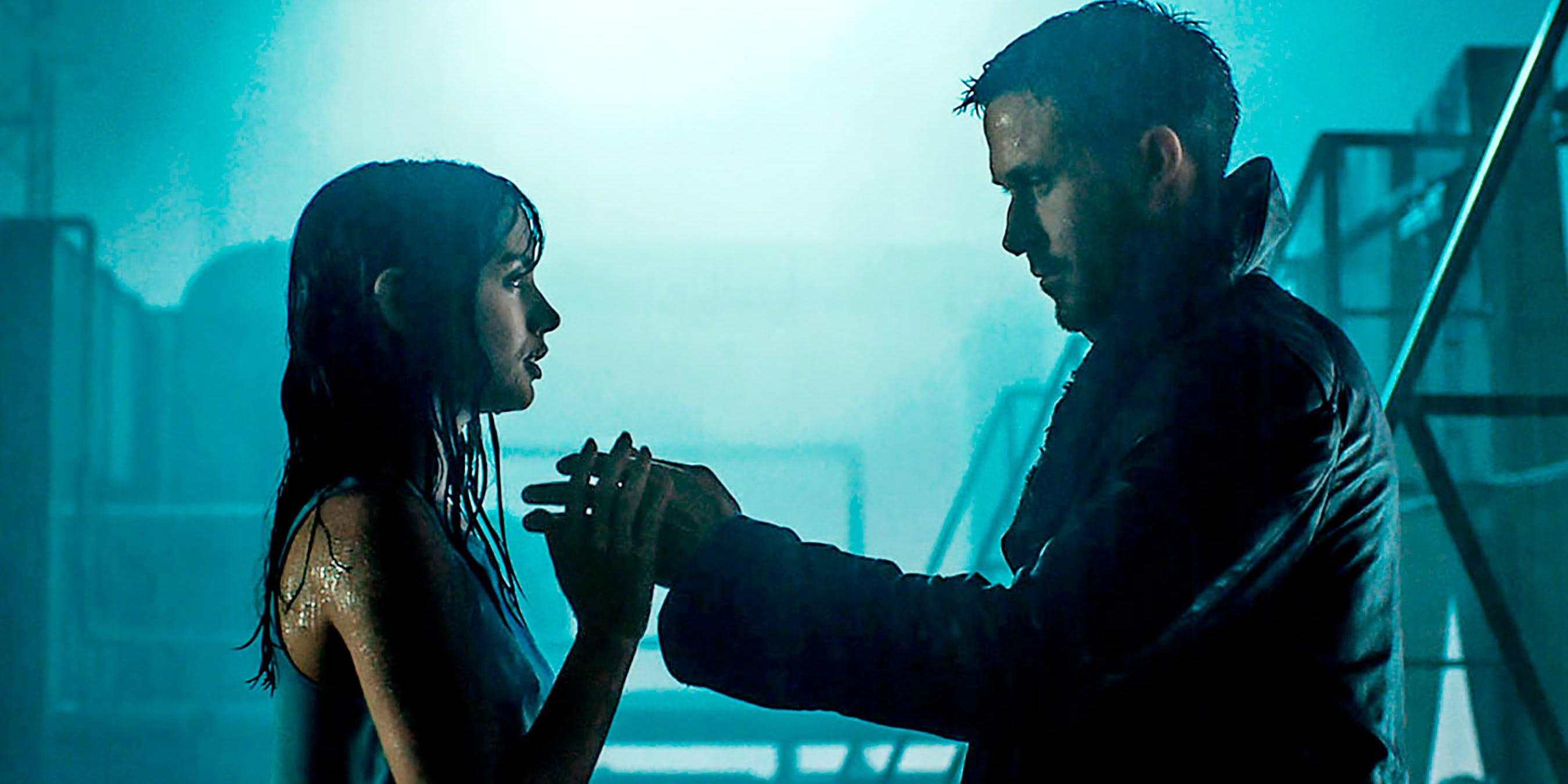Blade Runner 2049 : Sequel Almost Perfectly Replicates the Original Feel

Los Angeles, 2049. Deep in the neon canyons, it’s still raining, still gritty, and people are still dealing with a replicant problem. In the 30 years since the events in Blade Runner, LA has become a densely packed urban dystopia, enclosed behind massive walls to keep out the raging ocean, city-sized garbage dumps, and neighboring post-apocalyptic hellscapes.
Welcome to Blade Runner 2049, where the latest batch of replicants are obedient, where AIs and virtual reality have crossed the uncanny valley, and questions of what it means to be human are as troubling as ever. Conflicted LAPD blade runner “K” (Ryan Gosling) unearths a long-buried secret that leads him to the original blade runner, Rick Deckard (Harrison Ford), and which will ultimately determine the fate of replicants.
If you’re thinking “that’s awfully vague,” you’re right. It’s intentional. We make a point of never writing anything about characters or plot points that isn’t spelled out in official trailers. That’s more challenging than usual with Blade Runner 2049. The movie is so full of twists and turns that the trailers deliberately reveal almost nothing.
I can say this: the story which drives Blade Runner 2049 is well-conceived, well-executed, and narratively coherent. Its 2:43 runtime allows everything to unfold at such a languid pace, you almost don’t notice what a gut-punch it is.
In many ways, Blade Runner 2049 is a brilliant example of a sequel done well. It’s a continuation of Blade Runner rather than a nostalgic rehash. Its countless references to the original are clever and well-integrated without being slavish. The visuals and FX are modern but carry the same DNA. The story ties directly into the ambiguous ending of Blade Runner in a smart, effective way that makes the inclusion of characters like Deckard (Harrison Ford) both feasible and necessary. There are still Blade Runners and a monomaniacal geneticist with a dubious agenda, but their presence is a plausible extension of the original rather than a retread of old plot points.
The acting is top-notch. Gosling’s intentional monotone sells his tightly bottled rage and existential angst perfectly. He half-way smiles perhaps twice. When he explodes, it’s terrifying and heart-wrenching. Ford brings more emotional range than usual to his portrayal of Deckard as a broken old man who refuses to give up or give in. His one moment of Han Solo-esque swagger is brief, poignant, and devastating. There are strong supporting turns from Robin Wright (Wonder Woman) and Dave Bautista (Guardians of the Galaxy), and the handful of cameos are clever and effective.
The visuals and FX are stunning. The color palette is much broader and more effective than many CGI-heavy movies, alternately full of wide open, bright hazy orange post-apocalyptic landscapes and deep, shadowy, claustrophobic interiors. The contrast is stark and powerful. The CGI is extremely well-integrated, and features a truly unique visual I don’t think think I’ve ever seen. The deserted hotels and irradiated landscape are reminiscent of the video game series Fallout, but far more bleak.
Director Denis Villeneuve is no stranger to intelligent, atmospheric science fiction. Arrival was a moody, intelligent take on the first-contact story and showed how well-versed Villeneuve is with the genre. He does an admirable job with one of the most iconic movies of all time without leaning too heavily on nostalgia.
For all that Blade Runner 2049 gets right, it has two major problems. One is Jared Leto (Suicide Squad). He plays Niander Wallace, head of the replicant manufacturing company at the heart of the story. His combination of faux-gravitas and overbearing method acting sucks the air out of any scene he’s in. He spouts the type of pretentious, pseudo-messianic hyperbole common to megalomaniacs and first-year philosophy students. Think Zatoichi the blind samurai by way of Agent Smith, without Hugo Weaving’s charisma or acting chops.
The other big issue for me is the audio design. Hans Zimmer, a composer never known for musical subtlety, seems to have carte blanche with the score. He bludgeons the audience with a relentless, heavy-handed onslaught of deep brass and ultra-low register synth tones that could trigger landslides. It’s utterly missing any sense of dynamics, of pulling back or restraint. It reeks of not trusting the audience to understand the movie without insistent audio cues. It’s oppressiveness left me exhausted and frequently irked.
Blade Runner 2049 deserves an ‘A.’ It comes so close. It succeeds brilliantly at extending and enhancing the Blade Runner franchise. It’s brooding and philosophical without being pretentious (Leto’s scenes aside). It’s often slow but never boring. It uses action scenes sparingly but with devastating impact. It’s mysterious and captivating. Unfortunately, the oppressive audio design and score, not to mention Leto’s performance, drag it down a notch. But don’t let that stop you from seeing one of the most creative, visually arresting movies of the year.
The More You Know…
- Before heading to the theater, check out the three online mini “prequels” that Villeneuve commissioned. Cowboy Bebop creator Shinichirô Watanabe wrote and directed the anime Blade Runner: Black Out 2022, telling the story of a replicant attack that sets the stage for the main movie (available only with a Crunchyroll subscription). Blade Runner 2036: Nexus Dawn fills in the story of replicant prohibition and how Wallace was able to sell his new models. Lastly, Blade Runner 2048: Nowhere to Run introduces a pivotal character from the movie and provides a glimpse of what drives him. They’re all terrific short stories, providing critical backstory and reducing the amount of exposition needed to set up BR 2049.
- If you have severe audio sensitivity or issues with the type of audio prevalent in Christopher Nolan’s Inception and Batman movies, you may want to skip this. I found it oppressive and tiring; people with more sensitivity or audio-related medical issues may experience more serious issues.
Blade Runner 2049 (Columbia Pictures/16:14 Entertainment; Rated R): B+



